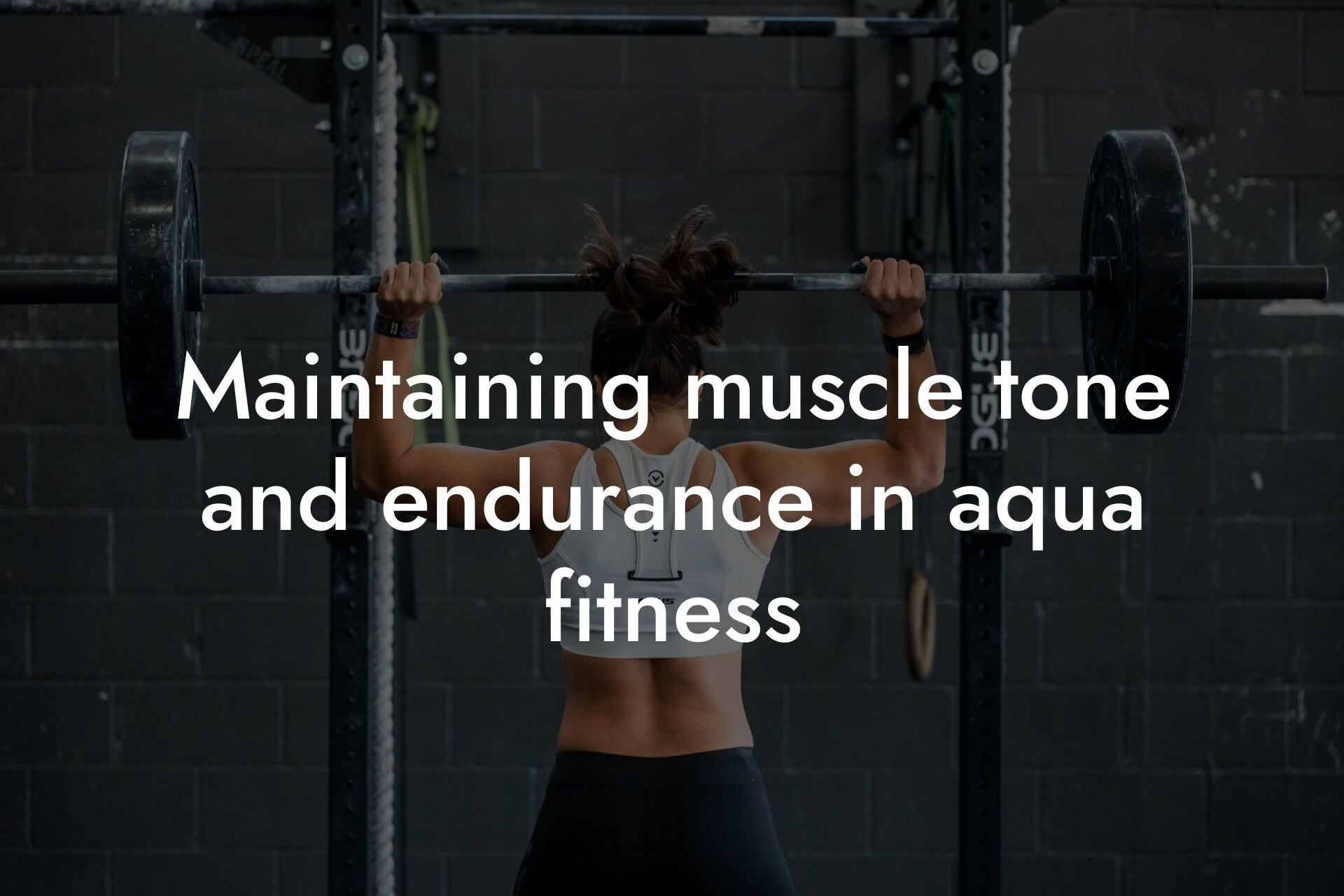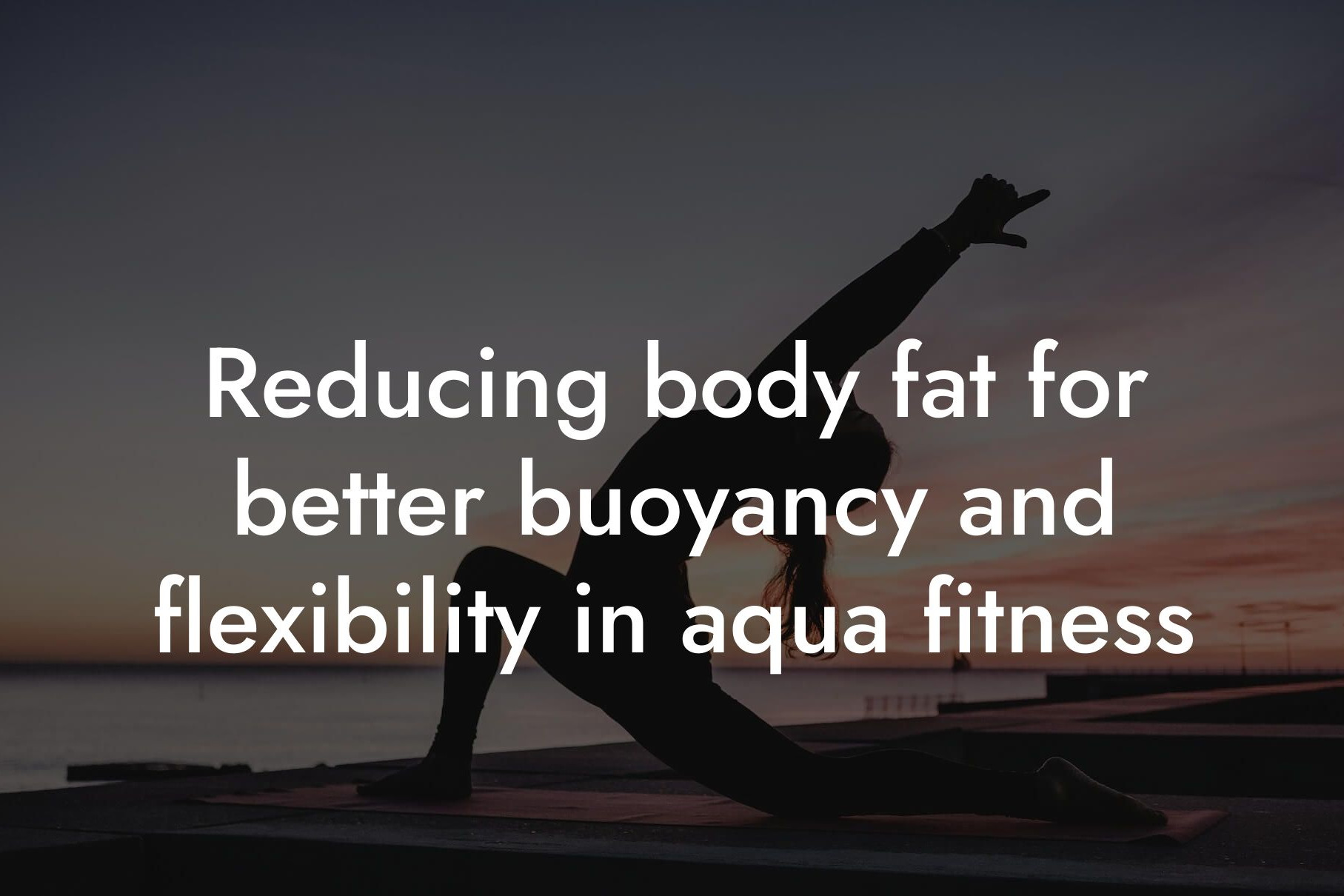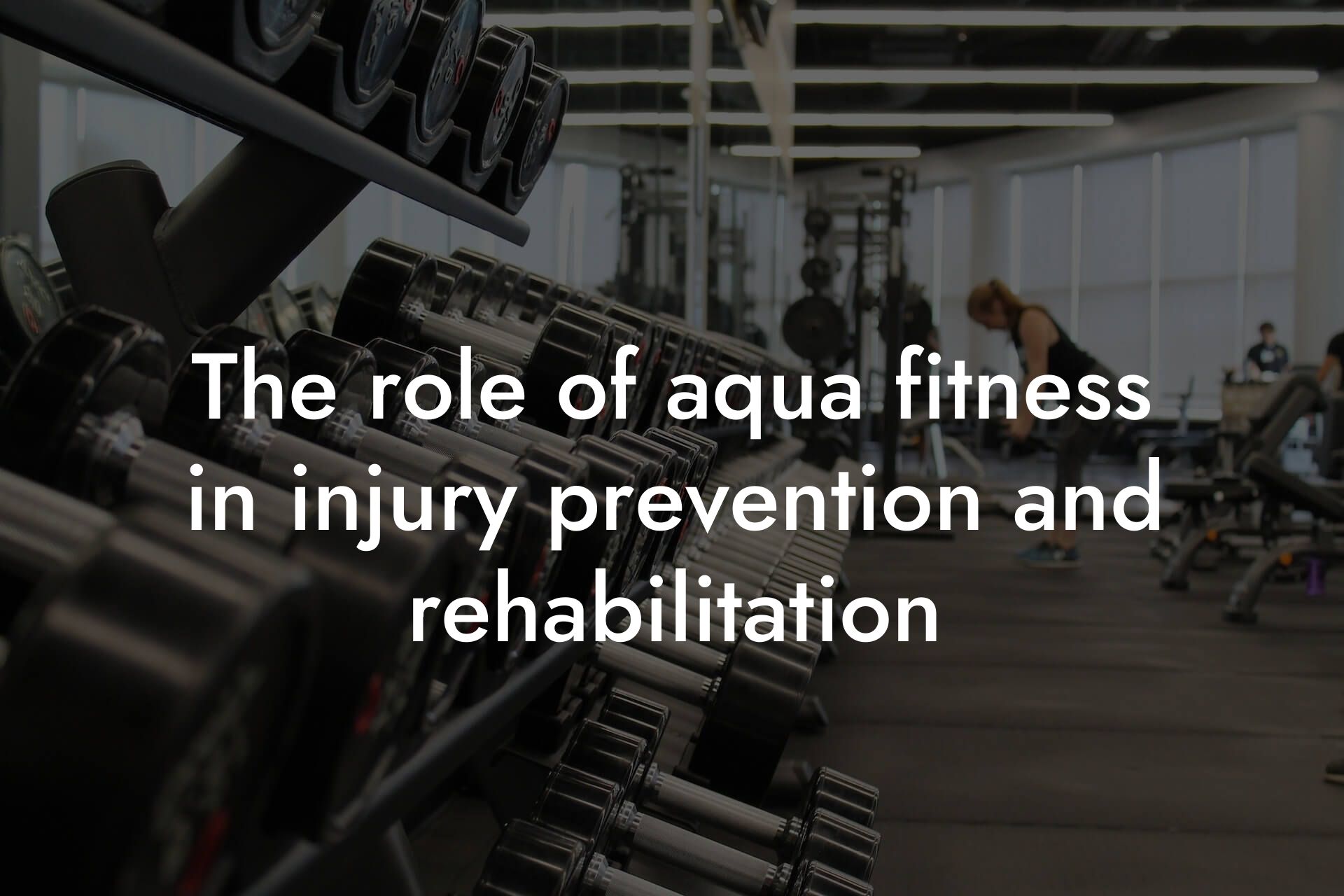Bone density is a critical aspect of overall health and fitness, and it plays a significant role in aqua fitness performance. As high-earning professionals, it's essential to understand the importance of bone density and how it can impact your physical appearance, body fat, physique, and overall athletic performance. In this article, we'll delve into the world of bone density, its role in aqua fitness, and how you can optimize your bone health to take your performance to the next level.
Table of Contents
What is Bone Density?
Bone density refers to the measure of how dense and strong your bones are. It's a critical indicator of bone health, and it's essential for maintaining proper posture, preventing injuries, and ensuring overall skeletal integrity. Bone density is typically measured using a DEXA (Dual-Energy X-ray Absorptiometry) scan, which provides a precise measurement of bone mineral density (BMD). A higher BMD indicates stronger, denser bones, while a lower BMD may indicate osteoporosis or osteopenia.
Why is Bone Density Important for Aqua Fitness?
Aqua fitness, such as swimming, water aerobics, or aqua jogging, is a low-impact exercise that can be beneficial for individuals with joint issues or those who are recovering from injuries. However, it's essential to have adequate bone density to support the stresses and demands of aqua fitness. Strong bones can help you perform better, reduce your risk of injury, and improve your overall athletic performance.
In aqua fitness, bone density plays a critical role in several ways:
- It helps maintain proper posture and alignment, which is essential for efficient swimming and movement in the water.
- It enables you to generate power and speed, as strong bones can transmit forces more effectively.
- It reduces your risk of injury, as dense bones can withstand the repetitive stresses and impacts associated with aqua fitness.
How Does Bone Density Affect Aqua Fitness Performance?
Bone density has a significant impact on aqua fitness performance. Individuals with higher bone density tend to perform better in the water, as they can generate more power, speed, and endurance. Strong bones also enable you to maintain proper technique, which is essential for efficient swimming and movement in the water.
On the other hand, individuals with low bone density may experience:
- Reduced power and speed, making it more challenging to perform exercises or swim laps.
- Increased risk of injury, as weak bones may be more susceptible to fractures or stress fractures.
- Poor posture and alignment, which can lead to inefficient swimming and increased fatigue.
Factors that Affect Bone Density in Aqua Fitness
Several factors can affect bone density in aqua fitness, including:
- Age: Bone density naturally decreases with age, making it essential to take proactive steps to maintain bone health.
- Genetics: Genetic factors can influence bone density, and individuals with a family history of osteoporosis may be more susceptible to low bone density.
- Nutrition: A diet rich in calcium and vitamin D is essential for maintaining strong bones.
- Exercise: Regular exercise, including aqua fitness, can help improve bone density, but inadequate or excessive exercise can have negative effects.
- Hormonal imbalances: Hormonal changes, such as those experienced during menopause or andropause, can affect bone density.
How to Optimize Bone Density for Aqua Fitness
To optimize bone density for aqua fitness, follow these tips:
- Engage in regular exercise, including aqua fitness, to stimulate bone growth and density.
- Maintain a balanced diet rich in calcium and vitamin D, and consider supplements if necessary.
- Get enough sleep and manage stress to support bone health.
- Avoid excessive exercise or repetitive movements that can put excessive stress on your bones.
- Consider incorporating strength training exercises to target specific muscle groups and improve bone density.
DEXA Scans for Bone Density Measurement
A DEXA scan is a non-invasive, painless test that measures bone density using X-ray technology. It's the most accurate and reliable method for assessing bone density, and it provides a precise measurement of BMD. At Tano Performance Group, we use state-of-the-art DEXA machines to provide our clients with a comprehensive body assessment, including bone density measurements.
Bone density plays a critical role in aqua fitness performance, and it's essential to understand its importance and how to optimize it. By incorporating regular exercise, maintaining a balanced diet, and getting enough sleep, you can improve your bone density and take your aqua fitness performance to the next level. Remember to get regular DEXA scans to monitor your bone density and make data-driven decisions about your fitness routine. With the right knowledge and tools, you can achieve your fitness goals and maintain optimal bone health.
Frequently Asked Questions
What is bone density, and why is it important for aqua fitness performance?
Bone density refers to the measure of how dense and strong your bones are. It's an important factor in aqua fitness performance because it affects your ability to withstand the impact and stress of exercises, especially those that involve high-impact movements or weight-bearing activities. Having strong bones can help you perform better and reduce your risk of injuries.
How does bone density impact my aqua fitness performance?
Bone density plays a crucial role in your aqua fitness performance by affecting your power, speed, and endurance. When you have strong bones, you can generate more force and speed, which translates to better performance in the water. Additionally, strong bones can help you maintain good posture, reduce your risk of injuries, and improve your overall fitness.
What are the risks of low bone density in aqua fitness?
Low bone density can increase your risk of injuries, such as fractures, sprains, and strains, which can keep you out of the water for an extended period. It can also lead to poor posture, reduced mobility, and decreased performance. Furthermore, low bone density can make it more challenging to recover from intense workouts, which can affect your overall fitness goals.
How can I improve my bone density for better aqua fitness performance?
There are several ways to improve your bone density, including a balanced diet rich in calcium and vitamin D, regular exercise, such as weight-bearing and resistance training, and adequate sleep. Additionally, incorporating high-impact exercises, such as jumping and hopping, into your aqua fitness routine can help stimulate bone growth and density.
What are the best exercises for improving bone density in aqua fitness?
Some of the best exercises for improving bone density in aqua fitness include high-impact movements, such as jumping jacks, squat jumps, and tuck jumps. Resistance training exercises, such as water-based strength training, can also help improve bone density. Additionally, exercises that target multiple muscle groups, such as burpees and mountain climbers, can be effective in improving bone density.
How often should I exercise to improve my bone density?
Aim to exercise at least 3-4 times a week, with a minimum of 30 minutes per session, to see improvements in your bone density. It's also essential to incorporate rest days into your routine to allow your bones to recover and rebuild.
What is the role of nutrition in bone density and aqua fitness performance?
Nutrition plays a critical role in bone density and aqua fitness performance. A diet rich in calcium, vitamin D, and protein can help support bone growth and density. Additionally, a balanced diet that includes foods high in omega-3 fatty acids, such as salmon and walnuts, can help reduce inflammation and promote bone health.
How does vitamin D impact bone density and aqua fitness performance?
Vitamin D is essential for bone health, as it helps regulate calcium levels and promotes bone growth and density. Low levels of vitamin D have been linked to poor bone density, increased risk of fractures, and decreased athletic performance. Ensure you get enough vitamin D through your diet, supplements, or sun exposure.
Can I improve my bone density at any age?
Yes, you can improve your bone density at any age. While peak bone density is typically reached in early adulthood, it's never too late to start taking steps to improve your bone health. With regular exercise, a balanced diet, and adequate sleep, you can improve your bone density and reduce your risk of osteoporosis and fractures.
How does osteoporosis impact aqua fitness performance?
Osteoporosis can significantly impact your aqua fitness performance by increasing your risk of fractures, reducing your mobility, and affecting your overall fitness. If you have osteoporosis, it's essential to work with a healthcare professional to develop a customized exercise program that takes into account your bone health.
Can I still participate in aqua fitness if I have osteoporosis?
Yes, you can still participate in aqua fitness if you have osteoporosis. However, it's crucial to take certain precautions, such as working with a qualified instructor, avoiding high-impact movements, and incorporating exercises that strengthen your core and improve your balance.
How does menopause impact bone density and aqua fitness performance?
Menopause can lead to a decline in bone density due to the decrease in estrogen levels. This can affect your aqua fitness performance by reducing your power, speed, and endurance. However, regular exercise, such as aqua fitness, can help mitigate the effects of menopause on bone density and overall fitness.
How can I track my bone density progress?
You can track your bone density progress through regular DEXA scans, which measure your bone density levels. Additionally, you can monitor your progress through improvements in your aqua fitness performance, such as increased speed, power, and endurance.
What are the benefits of incorporating aqua fitness into my exercise routine for bone density?
Incorporating aqua fitness into your exercise routine can help improve your bone density by providing a low-impact, high-intensity workout that targets multiple muscle groups. Aqua fitness can also help reduce your risk of injuries, improve your flexibility, and enhance your overall fitness.
Can I do aqua fitness if I have a bone density condition, such as osteopenia?
Yes, you can do aqua fitness if you have a bone density condition, such as osteopenia. However, it's essential to work with a qualified instructor who can modify exercises to accommodate your condition and reduce your risk of injury.
How does aqua fitness compare to other forms of exercise for bone density?
Aqua fitness is a highly effective form of exercise for improving bone density due to its low-impact, high-intensity nature. It can be more effective than other forms of exercise, such as cycling or swimming, in improving bone density, especially for individuals with joint issues or mobility limitations.
Can I do aqua fitness if I'm overweight or obese?
Yes, you can do aqua fitness if you're overweight or obese. Aqua fitness is a low-impact exercise that can be modified to accommodate your fitness level and weight. It can help you improve your bone density, reduce your risk of injuries, and enhance your overall fitness.
How does aqua fitness impact my overall fitness and physique?
Aqua fitness can have a significant impact on your overall fitness and physique by improving your cardiovascular health, increasing your strength and endurance, and enhancing your flexibility. It can also help you lose weight, improve your body composition, and boost your confidence.
Can I do aqua fitness if I have a history of injuries or chronic pain?
Yes, you can do aqua fitness if you have a history of injuries or chronic pain. Aqua fitness is a low-impact exercise that can be modified to accommodate your injuries or pain. It can help you improve your bone density, reduce your pain levels, and enhance your overall fitness.
How does aqua fitness impact my mental health and well-being?
Aqua fitness can have a positive impact on your mental health and well-being by reducing stress and anxiety, improving your mood, and enhancing your overall sense of well-being. The social aspect of aqua fitness classes can also help you connect with others and build a sense of community.
Can I do aqua fitness if I'm a beginner?
Yes, you can do aqua fitness if you're a beginner. Aqua fitness classes are designed to accommodate all fitness levels, and instructors can modify exercises to suit your needs. It's an excellent way to get started with exercise, improve your bone density, and enhance your overall fitness.
Here are some related articles you might love...
- Maintaining muscle tone and endurance in aqua fitness
- Reducing body fat for better buoyancy and flexibility in aqua fitness
- The role of aqua fitness in injury prevention and rehabilitation
- Using DEXA scans to monitor progress in aqua fitness
- Nutrition tips for sustained energy in aqua fitness classes
- How body composition impacts aqua fitness performance
- Balancing strength, flexibility, and cardiovascular health in aqua fitness
- Strength training tips to complement your aqua fitness routine
- Recovery techniques for aqua fitness practitioners
Zak Faulkner
Zak Faulkner is a leading authority in the realm of physical health and body composition analysis, with over 15 years of experience helping professionals optimise their fitness and well-being. As one the experts behind Tano Performance Group, Zak has dedicated his career to providing in-depth, science-backed insights that empower clients to elevate their physical performance and overall health.
With extensive knowledge of DEXA technology, Zak specializes in delivering comprehensive body assessments that offer precise data on body fat, muscle mass, bone density, and overall physique. His expertise enables individuals to make informed decisions and achieve their fitness goals with accuracy and confidence. Zak’s approach is rooted in a deep understanding of human physiology, combined with a passion for helping clients unlock their full potential through personalised strategies.
Over the years, Zak has earned a reputation for his commitment to excellence, precision, and client-focused service. His guidance is trusted by top professionals who demand the best when it comes to their health. Whether advising on fitness programs, nutritional strategies, or long-term wellness plans, Zak Faulkner’s insights are a valuable resource for anyone serious about taking their health and fitness to the next level.
At Tano Performance Group, Zak continues to lead our Content Team revolutionising how professionals approach their physical health, offering unparalleled expertise that drives real results.




